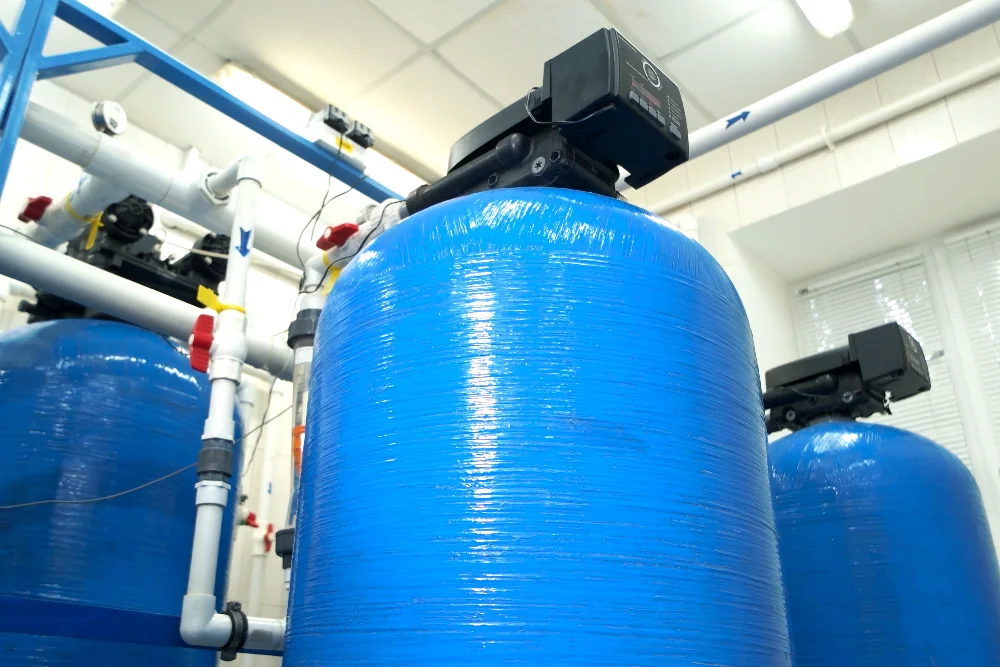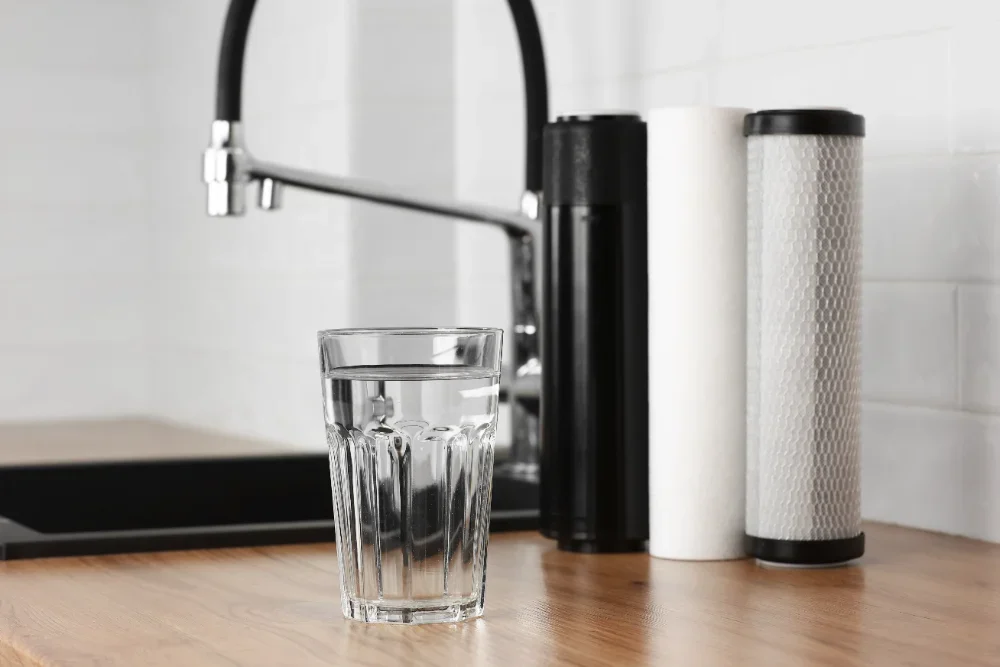
Clean water is not a luxury; it is a basic necessity. Whether you’re drinking from the tap or preparing your favorite food, the quality of your water is important. This is where a carbon filtration system for water comes in handy. If you’re wondering how these systems function and if they’re worth the investment, you’ve come to the correct spot. Let’s go over everything you need to know to make an informed decision.
What Is a Carbon Water Filter?
A carbon filtration system for water uses carbon, a naturally porous substance, to collect and neutralize pollutants. These filters significantly improve the flavor, odor, and general quality of water.
How Are Carbon Filters Made?
Carbon filters are usually constructed of organic materials such as coconut shells, coal, or wood. These materials are heated to high temperatures in a controlled atmosphere to produce activated carbon, which has a large surface area that is perfect for trapping contaminants.
How Do Carbon Water Filters Work?
As water runs through the filter, pollutants are trapped on the porous surface of the carbon through a process known as adsorption. This does more than merely prevent particles; it attracts and binds substances such as chlorine and volatile organic compounds (VOCs).
Types of Carbon Filters
There are several varieties of carbon filters on the market, each intended for a certain requirement or system.
Granular Activated Carbon (GAC)
Granular activated carbon water filtration involves loose carbon granules. These filters are well-known for their high flow rates and are commonly used in water filtration systems for whole-house systems.
Carbon Block Filters
These filters turn carbon powder into a solid block. Despite their slower flow rate, they offer finer filtration and catch tiny particles more efficiently than GAC.
Catalytic Carbon Filters
Catalytic carbon takes a step further, eliminating chemicals like chloramine that ordinary carbon filters struggle with. They are useful for municipal wastewater treatment.
How to Choose the Right Carbon Filtration System for Your Home
Consider your water supply, the toxins you’re targeting, and the amount of water your household consumes. A whole-house carbon filtration system is ideal for families that want clean water from all taps, not just the kitchen.
What Contaminants Do Carbon Filters Remove?
Carbon filters can help cleanse your water. Here are some of the most frequent pollutants they address:
Chlorine
If your water smells like a swimming pool, it contains chlorine. Carbon filters may eliminate this toxin, enhancing flavor and safety.
VOCs
Volatile Organic Compounds (VOCs) are dangerous substances that may enter your water from industrial waste, pesticides, and home cleansers. A carbon filtration system for water may capture several of these chemicals.
Bad Taste & Odor
Whether your water has a metallic taste or a musty odor, carbon filters are your best chance to restore a clean, fresh flavor.
Do Carbon Filters Remove Microplastics?
While not expressly designed for microplastics, certain carbon block filters with small pore diameters can aid in their removal. However, it is not guaranteed unless specifically stated by the manufacturer.
What Don't Carbon Filters Remove?
Carbon filters, despite their numerous benefits, are not a one-size-fits-all solution. They usually do not remove:
- Heavy metals, such as lead and arsenic
- Microorganisms, including bacteria and viruses
- Minerals responsible for water hardness
To tackle them, consider using a multi-stage system or combining your filter with a UV purifier or water softener.

Are Carbon Filters Good for Drinking Water?
Yes, but like with anything, there are advantages and disadvantages.
Pros of Using Carbon for Drinking Water
- Enhances flavor and fragrance.
- removes chlorine and VOCs.
- Simple to maintain and install.
- Affordable as compared to other systems.
Cons of Using Carbon for Drinking Water
- Does not eliminate microorganisms.
- Requires frequent replenishment to be effective.
- Not efficient in removing heavy metals.
How Long Do Carbon Filters Last?
The longevity of a carbon filter is determined by the quality and quantity of water used.
How Often Should You Replace Carbon Filters?
Carbon filters should be updated every 3 to 6 months for small units and 6 to 12 months for whole-house carbon filtration systems. Always adhere to the manufacturer’s specifications.
Need Whole-House Water Filtration Installers in Antioch, IL?
If you’re thinking of installing a whole-house carbon filtration system or another type of water filtration system for the whole house, be sure it’s done correctly the first time. Clean water is far too vital to leave to chance.
Ready for Better Water? Let's Make It Happen.
Getting clean water shouldn’t be a hassle, with options ranging from activated carbon for water filtration to whole-house solutions. That is where we come in. Wally Blanton Plumbing Inc. specializes in water solutions that keep your house safe and your water clean.
Whether you’re looking for granular activated carbon water filtration or a whole carbon filtration system for water, we have the knowledge and equipment to help. Contact us today for a free consultation and begin your journey to reliable, crystal-clear water. To get started, visit Wally Blanton Plumbing Inc.
